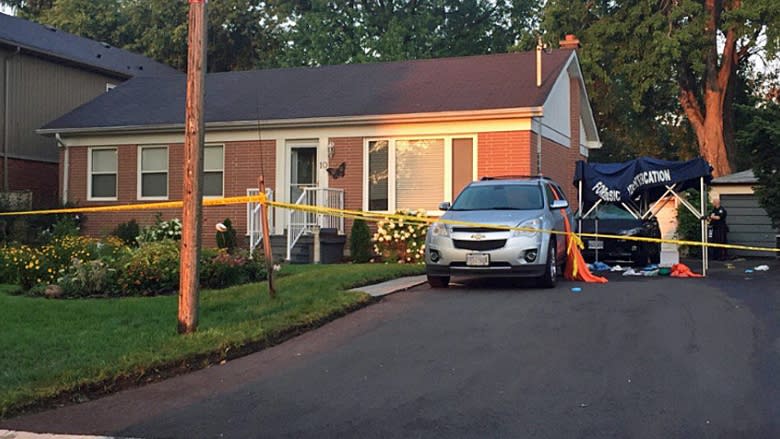Why crossbows aren't regulated
Those convicted of violent crimes are often ordered by the court not to own guns or crossbows, but because there's no regulation of crossbows, retailers don't know who they shouldn't be selling to.
That's why Solomon Friedman, an Ottawa-based firearms law expert, says vendors should be given access to a federal database that identifies those who have a firearms ban.
Although last week's slayings have prompted public discussion about licensing crossbows, Friedman says that the focus should be on those who are already banned from using weapons.
"Instead of spending an enormous amount of money and resources compiling and licensing law-abiding citizens, the government should prepare and distribute something that they already have — which is a registry of persons prohibited from [owning] weapons," he said.
Police have access to that information when they pull someone over on the road; when they run someone's licence plate they can learn if the person attached to it has any weapons bans, Friedman said.
"There's no reason why retailers couldn't also just enter a person's identifying information into a web portal and determine instantly whether they're prohibited," he said.
Ryan had firearms ban
Brett Ryan — the man accused of three counts of first-degree murder in the Scarborough attack that left a woman and two men dead, and a third man injured — was banned in January 2009 from owning weapons for at least 10 years. The ban was put in place after he pleaded guilty to 16 charges related to bank robberies, according to court documents obtained by CBC News.
Two of the men died from crossbow bolt injuries to the neck, according to autopsy results made public on Monday. Their mother died from strangulation, police said.
It's unclear whether Ryan owned the crossbow or whether it belonged to someone at the Lawndale Road home where the victims were found last Thursday.
While crossbow deaths are rare in Canada, there was another fatality in Toronto within the past six years.
In December 2010, Zhou Fang killed his abusive father with a crossbow at a Toronto library branch. He later received a life sentence with no chance of parole for 10 years.
Crossbow attacks have happened in other Canadian cities, too. A Calgary man was shot last summer in what was believed to be a targeted attack. The victim survived and was able to drive himself to hospital to be treated.
Certain types of crossbows are prohibited in Canada — those that are less than 50-cm long and those that can be aimed and fired with one hand. All others can be purchased without any kind of licence.
A proposed amendment to the Criminal Code that would have classified crossbows as firearms, and would have required they be licensed, was withdrawn in 1995 before being made law.
That makes sense, Friedman says, because crossbow deaths are exceedingly rare.
And it's why he said the focus should instead be on preventing those who have a violent criminal history from owning a weapon, rather than policing the vast majority who plan to use them legally.
It also might be impractical to regulate crossbows, the owner of Al Flaherty's Outdoor Store says, because not all have serial numbers.
"The implications of regulating all bows would be extremely expensive and probably impossible to implement," Domenic Saverino wrote to CBC News in an email. "Most bows do not have a serial number and there are likely hundreds of thousands in circulation."
Saverino said that those purchasing crossbows have to be 18 or older, and they can't be fired within Toronto.
No one from Public Safety Canada responded to questions about allowing retailers access to a federal database identifying those banned from owning weapons before deadline.



